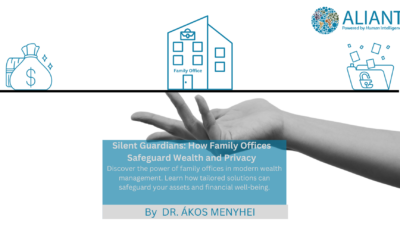Information relating to EP and EU Council Directive 2019/1937 on the protection of persons who report breaches of Union law (protection of whistleblowers). The obligations under the Directive are to enter into force in two rounds, first for large companies (17 December 2021) and are also to be extended to public sector entities, plus medium-sized companies
at a later date. The Act may also provide for obligations for businesses employing fewer than 50 people.
The legislative process in Poland concerning the act that is to define in detail the principles of protection of whistleblowers and the obligations of employers is at a preliminary stage, while it can already be assumed that the act will enter into force in late autumn, while the effects and obligations for entrepreneurs can already be compared to the implementation of the GDPR in 2018.
https://eur-lex.europa.eu/legal-content/PL/TXT/PDF/?uri=CELEX:32019L1937&from=EN – text of the Directive.
At this link you will find a general template we have drawn up for a procedure for the protection of whistleblowers in companies: https://aliantlaw.pl/publikacje (in Polish)
General principles of the Directive:
The Directive will apply to whistleblowers working in the private or public sector who have obtained information about violations in a work-related context, including at least:
persons having the status of a worker within the meaning of Article 45(1) of the TFEU, including civil servants – i.e. EU workers benefiting from the freedom of movement for services – working in a country other than their home country.
persons having the status of self-employed workers within the meaning
of Article 49 TFEU;
shareholders or members and those who are members of the administrative, management or supervisory body of the undertaking, including non-executive members, as well as volunteers and trainees, whether remunerated or not;
persons working under the supervision and direction of contractors, subcontractors and suppliers.
reporting persons when they report or publicly disclose information on violations they have received in the context of an employment relationship that has already ended.
reporting persons whose employment relationship is yet to be established, where the information on the infringements was obtained in the course of the recruitment process or other pre-contractual negotiations.
Where applicable, measures for the protection of notifiers shall also apply to:
persons assisting in the notification,
third parties associated with the reporter who may suffer retaliation in a work-related context, such as co-workers or relatives of the reporter; and legal entities which are owned by the reporting person, for which they work or which are otherwise connected to them in a work-related context.
Responsibilities:
Legal entities in the private and public sector will be required to establish channels and procedures for internal notification and follow-up, following consultation and in consultation with the social partners, where provided for under national law.
The channels and procedures referred to in paragraph 1 of this Article should allow employees of the entity to report information on breaches. They may also allow whistleblowing reports to be made by other persons who have contact with the subject in a work-related context.
Reporting channels may be operated internally by a designated person or department or provided externally by a third party.
Legal entities in the private sector with between 50 and 249 employees can share resources for intake and any ongoing investigations.
Following an appropriate risk assessment taking into account the nature of the entities’ activities and the resulting level of risk, particularly in the field of the environment and public health, Member States may require legal entities in the private sector with fewer than 50 employees to establish internal notification channels and procedures in accordance with Chapter II of the Directive.
The procedures for internal notification and follow-up referred to in Article 8 of the Directive shall include the following:
reporting channels designed, established and operated in a secure manner that ensures the protection of the confidentiality of the identity of the reporter and any third party named in the report, and that no unauthorised personnel gain access to them;
to confirm to the person making the notification the acceptance of the notification within seven days of its receipt;
the designation of an impartial person or department competent to follow up on reports, which may be the same person or department that receives reports, that will communicate with and, where appropriate, seek further information from and provide feedback to the person making the report;
ensuring that due diligence is followed up by the designated person or department following up with due diligence, if national law so provides, anonymous reports;
a reasonable period for feedback, not exceeding three months from the acknowledgement of receipt of the notification or, where
no acknowledgement has been sent to the notifier, three months from the expiry of seven days from the notification;
to provide understandable and easily accessible information on the procedures for making external notifications to the competent authorities pursuant to Article 10 of the Directive and, where appropriate, to Union institutions, bodies, offices or agencies.
The channels for the receipt of reports must allow reports to be made in writing or orally. Oral notification may be made by telephone or other voice communication systems and, at the request of the person making the notification, by means of a face-to-face meeting arranged within a reasonable time.
It will also be possible to report violations through external channels (outside the company / to competent authorities -> Police?)
There will be an obligation to keep records of notifications.
The Directive provides for a right of public notification in certain cases.
Measures to protect whistleblowers
Member States are to take the necessary measures to prohibit all forms of retaliation against whistleblowers, including threats of retaliation and attempts at retaliation, including, in particular, retaliation in the following forms:
a) suspension, compulsory unpaid leave, dismissal or equivalent measures;
b) demotion or suspension of promotion;
c) delegation of duties, change of place of work, reduction in pay, change of working hours;
d) suspension of training;
e) a negative performance appraisal or negative job evaluation;
f) the imposition or application of any disciplinary measure, reprimand or other penalty, including a financial penalty;
g) coercion, intimidation, bullying or exclusion;
h) discrimination, unfavourable or inequitable treatment;
i) not to convert a fixed-term employment contract into an employment contract of indefinite duration when the worker could reasonably have expected to be offered permanent employment;
j) non-renewal or early termination of a fixed-term employment contract;
k) harm, including damage to an individual’s reputation, particularly on social media, or financial loss, including economic loss and loss of income;
l) blacklisting on the basis of informal or formal sectoral or industry agreements which may result in the individual not finding future employment in a particular sector or
m) early termination or cancellation of a contract for goods or a contract for the provision of services;
n) withdrawal of the licence or permit;
o) referrals for psychiatric or medical examinations






